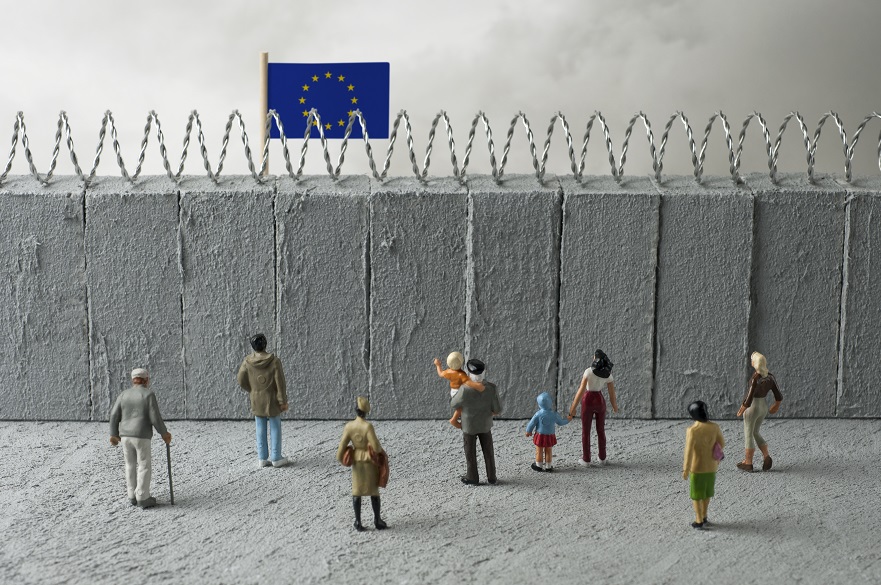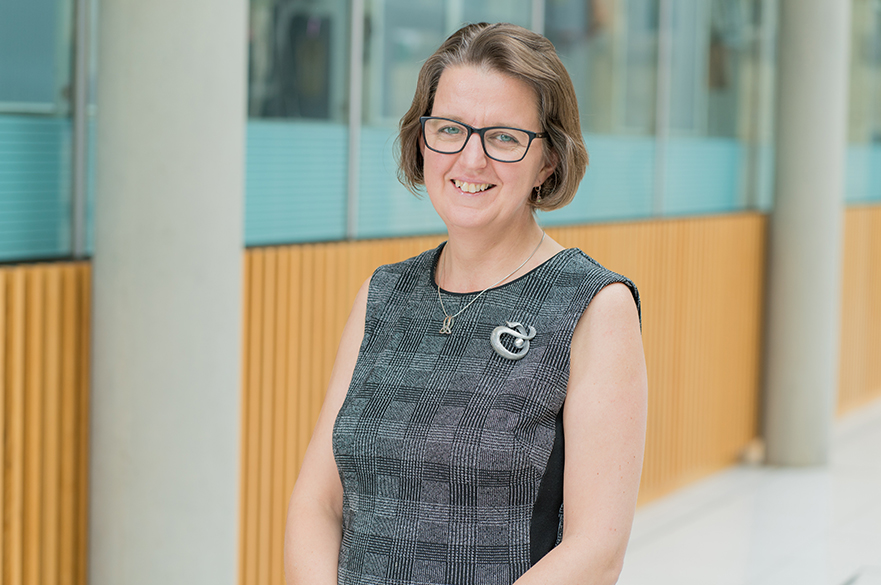Expert blog: World Refugee Day 2022 - after a bruising few years, we all need healing
By Helen Breese | Published on 17 June 2022
Categories: Press office; Research; Nottingham Law School;

Monday 20 June is World Refugee Day and the start of Refugee Week 2022 – the theme this year is ‘healing’
At a time when conflicts around the world are producing unprecedented numbers of refugees in addition to people suffering persecution due to race, religion, sexuality, gender and political opinion around the world and the rising number of people displaced because of climate change, it feels like the world needs healing. The UNHCR published its Global Trends Report 2022 in June 2022 and for the first time ever, the number of people displaced around the world exceeds 100 million, which includes 27.1 million refugees and 4.6 asylum seekers. Countries (mainly low or middle income countries) which border the conflicts are burdened with the majority of refugees (83%). A minority of refugees continue on dangerous and often life-threatening journeys to safety and a significant proportion of them end up in Europe.
What about all those refugees crossing the English Channel?
Despite the rhetoric of the UK government, the UK hosts fewer refugees and has fewer applications for asylum than most European countries including France, Italy and Germany. In the year up to March 2022, 55,146 applications for asylum were made in the UK, compared to 90,000 in France. The number of people seeking asylum in the UK has risen steadily since 2010, but the UK ranks 14th in Europe for the number of applications for asylum in 2021. Small numbers of people are resettled in the UK through resettlement schemes such as the Afghan Citizens Resettlement Scheme or via sponsorship, e.g. 'Homes for Ukraine' . The only way to claim asylum is to be on UK soil and thus, for most refugees the only way to get here is to take irregular routes such as crossing the English Channel in small boats or climbing on the back of lorries (which have decreased significantly because of a combination of factors including the pandemic and Brexit). Most people arriving by irregular methods are recognised as refugees, so it is disingenuous for Priti Patel to describe these people as ‘illegal migrants’. Under the Refugee Convention (which the UK ratified in 1951), it is not illegal to leave your country of origin and travel to another country to seek sanctuary. The Refugee Convention does not state that a person must claim asylum in the first ‘safe’ country, and the host country must not penalise a person for entering the country illegally (Article 31) nor return someone or send them to a country where their life or freedom would be at risk or there is a real risk of torture or inhuman and degrading treatment (Article 33 Refugee Convention and Article 3 European Convention of Human Rights).

Dr Ruth Brittle, Nottingham Law School
Rwanda deal: what is it and what is wrong with it?
The Memorandum of Understanding (MoU) which the UK and Rwanda signed in April 2022 is part of the government’s agenda to ‘get things done’ – Brexit is done, Covid is done and now Johnson and his government want to ‘get immigration done’ and be seen to ‘take back control’ of the borders.
The controversial deal with Rwanda, worth an initial £120 million, has drawn widespread criticism from national NGOs, UNHCR, trade unions, Church Leaders and politicians from all colours of the political spectrum. The government’s justification for the deal is that it will deter irregular entry to the UK and will break the ‘business model’ of smugglers and traffickers. But the government has not produced any evidence that sending people 4,000 miles away will work. The Australian model of offshoring asylum processing did not work and the camps in Papua New Guinea were eventually closed, costing AUS $6 Billion. The Home Office’s top civil servant, Matthew Rycroft has said that it will not have the desired deterrent effect.
Under the MoU, the UK will ‘relocate’ people on a one-way ticket to Rwanda for processing claims, and if recognised as refugees, they will stay in Rwanda and will not be allowed to return to the UK. The deal is unlawful because it undermines key international obligations on refugee protection and violates fundamental human rights (UNHCR). There is evidence of widespread human rights abuse in Rwanda but the UK government argue that Rwanda is a safe third country which respects human rights and has a functioning asylum system.
Is Rwanda a safe third country?
In a word, no. As recently as January 2021, the UK government did not consider Rwanda a ‘safe third country’ and condemned its human rights record highlighting the use of extrajudicial killings by state police, arbitrary detention, torture of people who oppose the government and the continued persecution of the LGBTI community. Human Rights Watch report an increase in gender based violence (GBV), particular against young girls. The Home Office Country Policy and Information (CPIN) Report on Rwanda reveals that asylum claims can take years and points to a high rejection rate of individual asylum claims (with little access to legal support and interpreters), especially from people claiming persecution on grounds of sexuality or GBV. There is nothing in the MoU to stop Rwanda sending ‘relocated persons’ to another country where their lives might be at risk.
Why were the flights to Rwanda stopped?
At the start of June, around 100 people received ‘removal notices’ and were told they would be flown to Rwanda on 14 June 2022. A Judicial Review application was made on 10 June with an emergency injunction to remove individuals from the flight. By 10pm on the 14 June, no one was left on the flight to Rwanda, due to withdrawal of removal notices, an interim measure granted by the European Court of Human Rights (ECtHR) and injunctions granted by the Court of Appeal late on Tuesday evening. Both Boris Johnson and Priti Patel were quick to blame ‘lefty’ human rights lawyers for disrupting the process and delaying the removals. Although the individuals on this flight have interim relief from removal, the government are not deterred and Priti Patel has announced that the next group of asylum seekers are receiving their notices and another flight is being arranged as she continues to believe that the policy if lawful. But, crucially, the High Court, the Court of Appeal and the Supreme Court have not yet decided whether the Rwandan policy is lawful and will only consider that question at the substantive (full) judicial review hearing in July 2022.
But what is the alternative?
The government says that no one has come up with an alternative. But safe and legal methods are already being used (e.g. the Ukrainian scheme which is uncapped) and alternatives have been proposed by charities such as the Refugee Council and Safe Passage, which include humanitarian visas, family reunion routes, sponsorship or expanded resettlement schemes. These proposals would ensure people do not have to resort to smuggling networks to undertake dangerous journeys. These would break the ‘business model’ of smuggling and start the journey to healing.
If you would like to know more about what Nottingham is doing to celebrate Refugee Week, visit: https://nottinghamrefugeeweek.org/2022/
Dr Ruth Brittle, Lecturer, Nottingham Law School